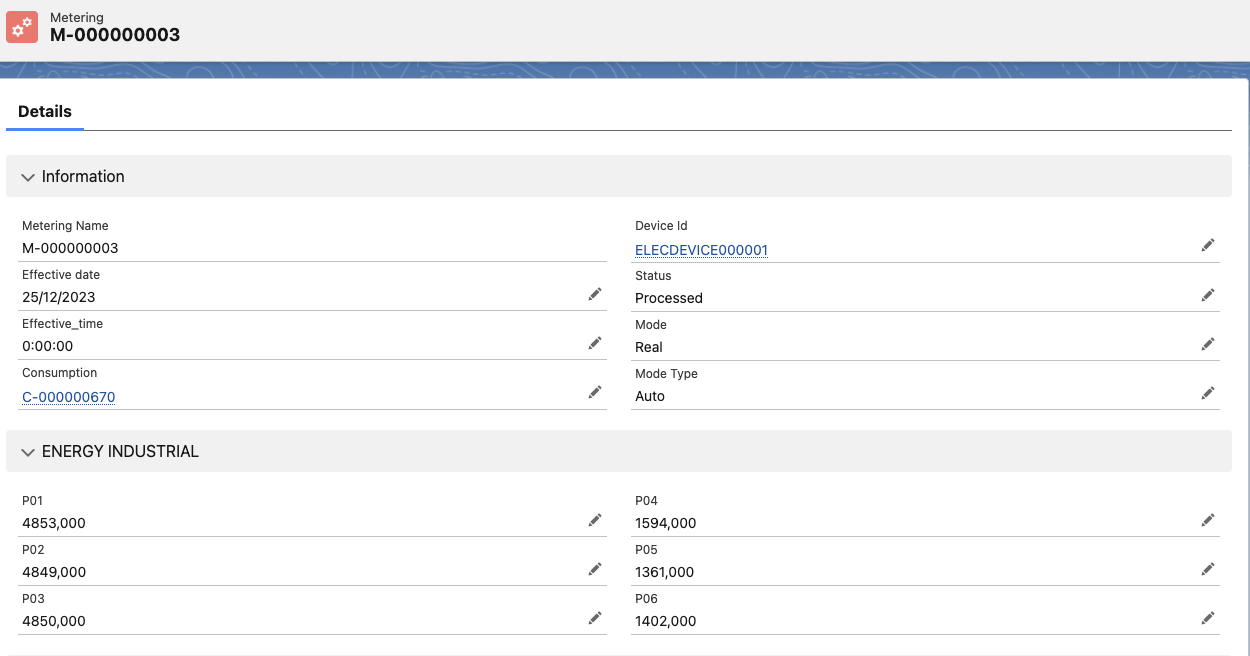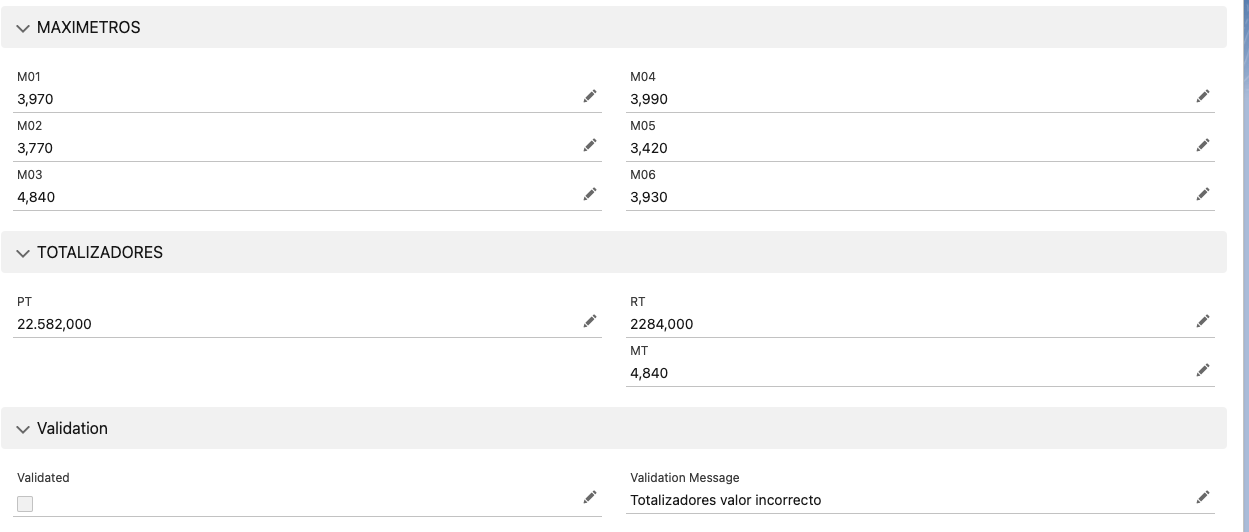Metering Storage and Validation
This process covers the collection, storage, and quality control of recorded metering data.
Measurement Data Storage
Centralized management of all metering data recorded by measurement devices.
Structured organization of data for further processing and analysis.
Integration with billing systems to ensure accuracy in consumption calculations.

The data structure is designed to store all metering data before validation and processing.
It allows for the storage of data from different types of devices, such as smart meters, data concentrators, and other measurement devices.
The data is structured by:
- Meter Data: Device or contract information
- Effective date and time: Timestamp of the recorded data
- Modetype and Mode: To identify the source of the metering, such real or estimated, automatic or manual.
- 6 main values: To store the different types of measurements, such as active energy.
- 6 additional values: To store additional measurements, such as reactive energy.
- 6 extra values: To store additional measurements, such as maximeter.
- 3 totalizer values: To store the totalized values of the measurements of the three groups.
Measurement Validation Rules
Application of validation rules to detect anomalies in metering data.
Flexible configuration of validations based on:
- Device type
- Tariff structures
- Acceptable value ranges
Allows for custom validation rules tailored to specific business requirements.

Error Meterings are ifentified and stored in the system for further analysis and correction.
Measurement Approval Management
Manual or automated verification of metering data flagged as erroneous.
Approval of data before use in billing processes or operational analysis.
Enhances the quality of information used in critical processes.








